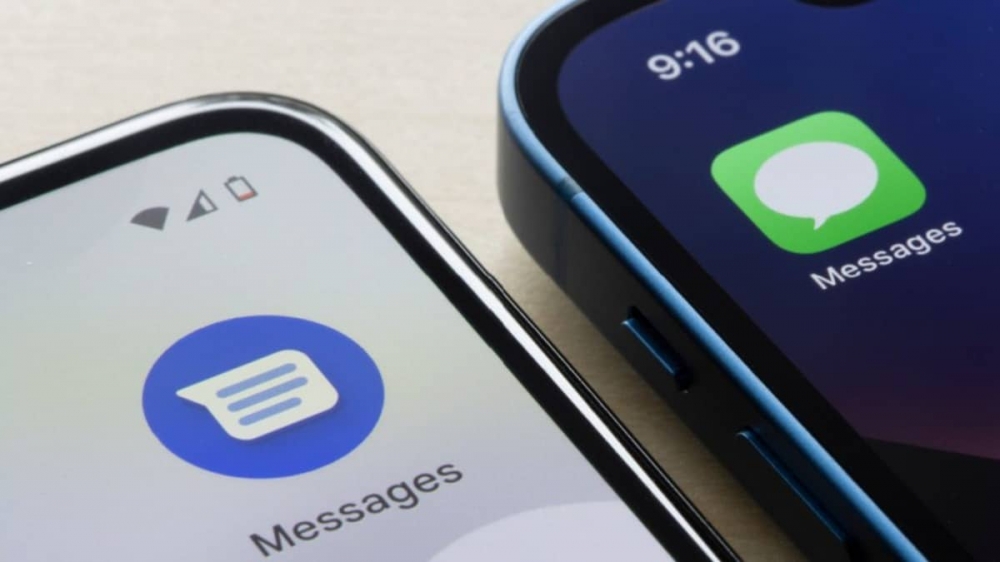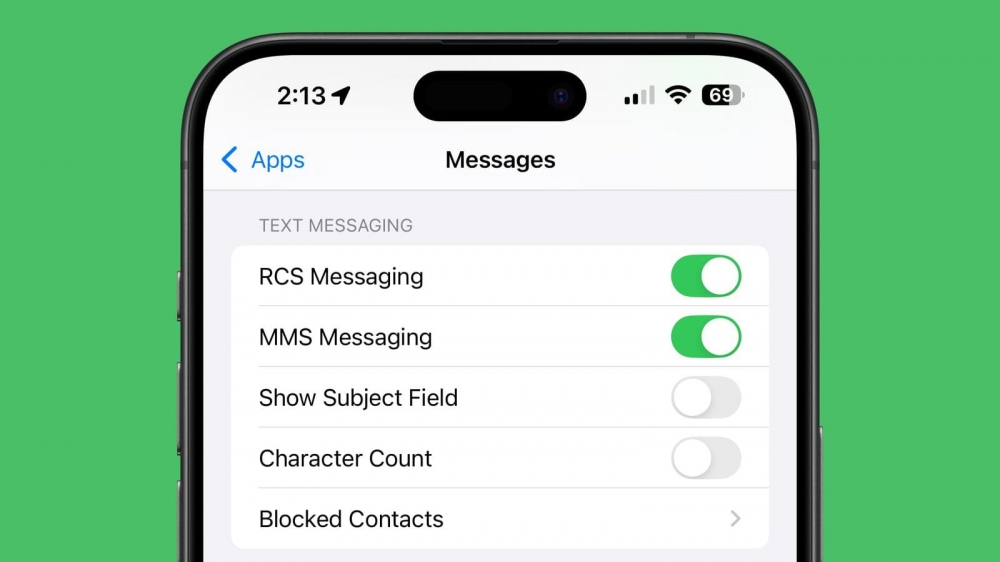iOS 18’s Game-Changing RCS Feature: The End of Apple's Green Bubbles and Messaging Nightmares?
- iOS 18 beta is making Android texts look way less lame.
- Group chats with your Android friends just got a major upgrade.
- RCS support: Apple’s secret weapon to end messaging chaos.
- Tired of green bubbles? iOS 18’s got you covered.
- Curious about Apple's latest messaging magic? Dive in!
If you’re running the iOS 18 developer beta, you might've noticed your Android pals’ messages no longer appear as the same old green bubbles. Thanks to carriers steadily rolling out RCS (Rich Communication Services) support on the backend, iPhone users are now reporting long-standing feuds being resolved with the adoption of this new messaging protocol. It’s a pretty neat time to be alive!
The second iOS 18 developer beta introduces this new RCS capability, which was quietly announced at WWDC 2024. For those adventurous enough to use the beta on their primary phone, this means rich messages can now be exchanged with Android users. Audio and video quality will no longer be sacrificed, and group chats should be a whole lot smoother. You can even see when an iPhone user has left you, dear Android user, on read.
 Image credit: NoMusica
Currently, only some U.S. carriers like AT&T, T-Mobile, and Verizon have embraced RCS, possibly to aid developers targeting iOS 18 apps. If you’re dabbling with the iOS 18 developer beta, you might find an option to enable RCS in Settings > Apps > Messages. If it’s missing, your provider hasn't flipped the switch yet. So, hang tight or perhaps consider reverting to a more stable iOS version.
Image credit: NoMusica
Currently, only some U.S. carriers like AT&T, T-Mobile, and Verizon have embraced RCS, possibly to aid developers targeting iOS 18 apps. If you’re dabbling with the iOS 18 developer beta, you might find an option to enable RCS in Settings > Apps > Messages. If it’s missing, your provider hasn't flipped the switch yet. So, hang tight or perhaps consider reverting to a more stable iOS version.
Apple’s adoption of RCS in iOS 18 signifies a major shift in the landscape of cross-platform messaging. RCS utilizes the internet for richer features like high-quality photos, typing indicators, read receipts, and more reliable group chats. Previously, these features were exclusive to iMessage conversations between Apple users, leaving Android messages stuck in the outdated SMS and MMS protocols.
 Image credit: Techloy
With RCS, the gap between iMessage and traditional messaging is narrowing. No more grainy photos or broken group chats when texting Android friends. Apple’s press release detailing iOS 18 highlighted that this move aims to offer a more seamless and enriched messaging experience. However, the familiar green bubbles of Android messages will persist, though now with enhanced functionality.
Image credit: Techloy
With RCS, the gap between iMessage and traditional messaging is narrowing. No more grainy photos or broken group chats when texting Android friends. Apple’s press release detailing iOS 18 highlighted that this move aims to offer a more seamless and enriched messaging experience. However, the familiar green bubbles of Android messages will persist, though now with enhanced functionality.
Despite the excitement, RCS support is currently limited to major U.S. carriers. This partial rollout means some users may not experience the full benefits until their carriers update their network bundles.
The toggle to activate RCS can be found under Settings > Apps > Messages for those on the iOS 18 developer beta, provided their carrier supports it.
Another intriguing aspect to watch is whether users will migrate back to the default Messages app for inter-platform communication. Many, like myself, have favored WhatsApp for its high-resolution messaging capabilities with iPhone users. Yet, I suspect iPhone users might lean back towards Apple Messages to keep their conversations unified. This will be especially interesting when iOS 18 hits iPhones this fall.
Apple’s integration of RCS also hints at potential future enhancements. There are still many questions about how well RCS will support group chats and message reactions sent by Android phones to the iPhone. For now, these details remain under wraps, possibly until Apple unveils its next iPhone later this year.
Beyond RCS, iOS 18 brings a slew of other features to Apple Messages. Enhanced group chat management, new Tapback reactions, inline replies, and improved audio message quality are among the anticipated updates. The integration of RCS is just one part of Apple’s broader strategy to make messaging more seamless and enjoyable across different platforms.
The introduction of RCS in iOS 18 marks a significant step forward in bridging the gap between iPhone and Android messaging. As more carriers adopt this standard, the days of fragmented and frustrating cross-platform messaging may soon be behind us. Keep an eye on how this develops as iOS 18 continues to evolve and roll out to the public later this year.
Recommended by the editors:
Thank you for visiting Apple Scoop! As a dedicated independent news organization, we strive to deliver the latest updates and in-depth journalism on everything Apple. Have insights or thoughts to share? Drop a comment below—our team actively engages with and responds to our community. Return to the home page.Published to Apple Scoop on 27th June, 2024.
No password required
A confirmation request will be delivered to the email address you provide. Once confirmed, your comment will be published. It's as simple as two clicks.
Your email address will not be published publicly. Additionally, we will not send you marketing emails unless you opt-in.